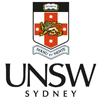Bachelor of City Planning (Honours)
UNSW
CRICOS provider number: 00098G TEQSA provider ID: PRV12055
Courses included
This course has been cancelled
About
Learn how to shape sustainable, equitable, healthy and inspiring built environments. City planners play a pivotal role in decisions shaping the future of our cities and regions by working at the interface between development and environment. This degree will teach you how to collect and analyse information, identify requirements and options, make forecasts, and prepare policies, plans and programs for implementation.
You will also learn how to exercise development control, investigate development proposals, evaluate results and communicate outcomes. Work experience is a defining feature of the degree, which enjoys longstanding support from both public and private sector organisations. You will work closely with a broad range of partners across the city, state and internationally. You will graduate with the knowledge and skills required to address contemporary planning issues, including sustainability, development feasibility, housing affordability, transport and infrastructure provision, facilitating urban renewal, and tackling social inequality and exclusion.
Read about the Faculty of Arts, Design & Architecture.
ATAR Profile: Some UNSW offers were issued based on the UNSW Gateway Admission Pathway with a lower ATAR entry requirement. Refer to the Admissions Information for a complete ATAR profile by degree.
Areas of study
City economics, environment, housing policy and urban renewal, infrastructure and transport planning, planning law, sustainability and resilience, urban design, urban society theory and history.
Career opportunities
City planner, strategic planner, environmental planner, social and community planner, urban policy and research consultant, urban consultant, transport and environment planning. You may also become a specialist in planning law if you study 426000 Bachelor of City Planning (Honours)/Bachelor of Laws.
Professional recognition
Fully accredited by the Planning Institute of Australia (PIA).
Practical experience
Third year is a practice year, during which students undertake full-time planning employment or a practice-related activity. A series of practice-based courses integrate students' vocational learning into their ongoing studies.
Double degrees: Bachelor of City Planning (Honours) can be combined with 426000 Bachelor of Laws.
Fees and charges
Refer to UNSW current fee information.
Admission criteria
Applicants with recent secondary education
Recommended studies: Design and Technology, Economics, English Advanced, Geography, Legal Studies, Society and Culture.
Portfolio Entry Early Conditional Offer Scheme: Demonstrate your passions and skills alongside your ATAR. Depending on your preferred degree, you'll complete either a critical reflection or a portfolio, with successful applicants receiving an early conditional offer with an adjusted ATAR entry requirement for their preferred degree. Learn more about the Portfolio Entry Early Conditional Offer Scheme.
Other applicants
Refer to UNSW general admission criteria.
Student profile
Visit the UNSW website.
Further information
View all details of this course on the UNSW website.
The academic content of all programs is subject to routine review.
ATAR profile
ATAR-based offers only (semester 1, 2024)
Use all ATAR profile data as a guide only; it provides a broad overview of the ATARs and selection ranks of previous Year 12 students admitted into that course. ATARs and selection ranks required for entry in 2025 may be different. If you are unsure about including a course among your preferences, contact the relevant institution.
- This ATAR profile table is in line with Commonwealth Government transparency requirements. It is based on offers to recent school leavers (ie completed Year 12 in the last 2 years) who were selected solely or partly on their ATAR. Note that some institutions further differentiate this information on their websites.
- The ATAR values exclude any adjustment factors.
- The selection ranks include the ATAR and any adjustment factors.
Abbreviations
– = data is not available.<5 = less than 5 ATAR-based offers were made.
N/A = no offers were made on the basis of ATAR.
NC = new course
NP = Not provided by institution
NR = No reportable profile
NS = No Semester 1 offers
NN = Unavailable (other)
NO = Entry on other criteria
Student profile
Course updates
Courses are added and cancelled throughout the admissions year and course details are subject to change. Check the UAC course search regularly.
Double degree options
Double degree options are available in a number of UNSW courses.
Honours at UNSW
Studying honours offers a chance to develop your research and professional skills guided by staff who are passionate about research and the development of new researchers. Honours is an integral component of many UNSW courses or may be offered as an additional year of study to meritorious students.
